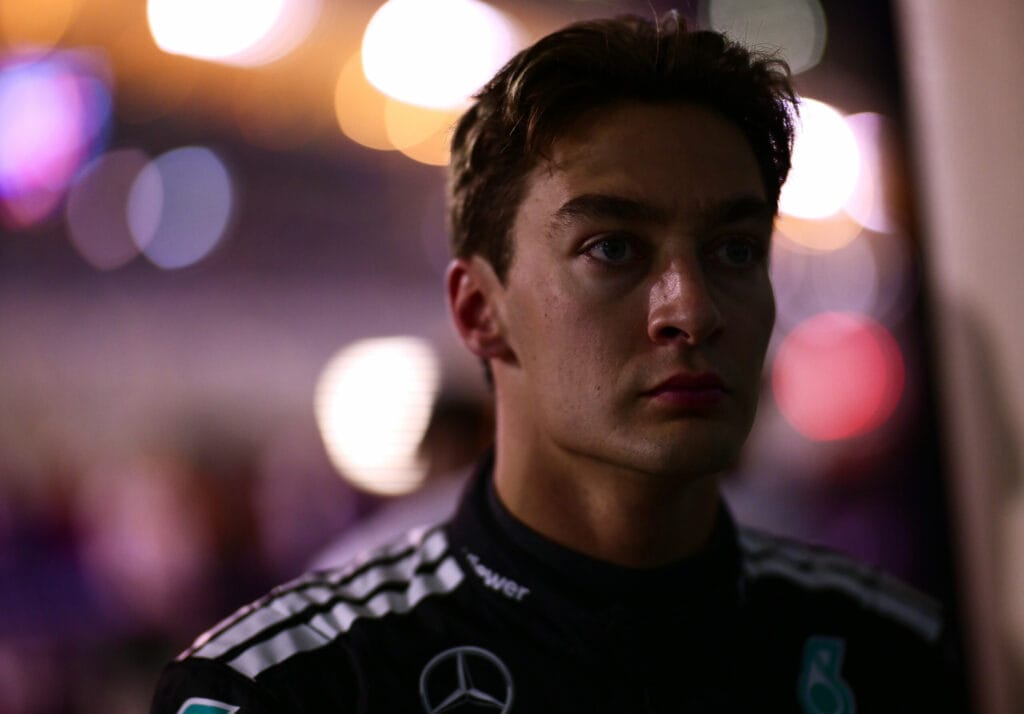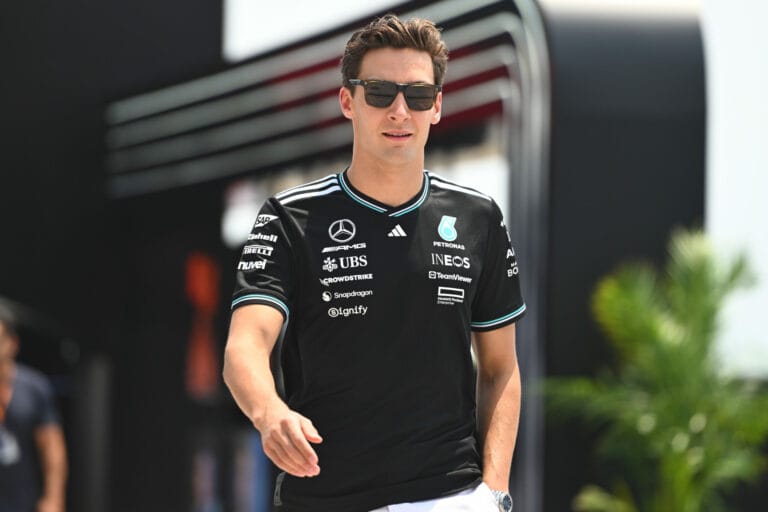Mercedes is left with a bitter taste after the qualifying round at the Bahrain International Circuit. George Russell and Andrea Kimi Antonelli qualified second and fourth respectively, but both received a one-place grid penalty for the Bahrain Grand Prix.
After the crash of Haas driver Esteban Ocon in Q2, the qualifying round was neutralized. Even before the restart time was confirmed by the FIA, the Mercedes drivers were the first to leave their garages and stopped at the end of the pit lane. Shortly thereafter, the FIA confirmed that George Russell and Andrea Kimi Antonelli were under investigation for this incident.
Ultimately, the FIA, after consulting with the stewards, ruled that Mercedes ‘could have gained a sporting advantage in the sense that the team could have been able to execute its run plan, while other teams might not be able to’. The stewards deemed a sporting penalty appropriate for the violation and decided on a one-place grid penalty for both George Russell and Andrea Kimi Antonelli. This was a blot on the good qualification, as the Briton thus drops from second to third place and the young Italian from fourth to fifth.
FIA Statement
The full statement from the FIA reads: “The stewards heard from the team representative, the race director, and the sporting director of the FIA Single Seater and reviewed video, timing, team radio, and in-car video evidence. The drivers were excused from attendance.”
The team representative, Mr. Shovlin, stated as evidence that he had mistakenly given the instruction to release the cars after misinterpreting the message on page 3 of the timing screen, ‘estimated restart time’, as a message advising the actual restart time. He argued that in this case, no sporting advantage was gained, as there was ample time left (11 minutes) for other teams to execute their run plans.
It was also noted that the team’s sporting director, Mr. Meadows, was not present at the event and would normally be involved in the release process.
The sporting director of the FIA Single Seater stated that such a step could be a sporting advantage in the sense that it could enable a team to execute its run plan, while other teams might not be able to.
The stewards agree with this view, especially when there are only a few minutes left in the session.
The sporting director of the FIA argued that there should be a sporting penalty instead of a team fine, otherwise teams would release their cars as soon as the estimated restart time was published in the future. The stewards agree with this view.
Mr. Shovlin argued that it was possible to give a non-sporting penalty if the stewards declared that it should not be construed as a precedent, but also stated that if a sporting penalty were to be given, it should be mitigated.
The stewards agreed with the view that this violation required a sporting penalty, but accept that the violation was unintentional and a genuine mistake by the team for which Mr. Shovlin apologized. We decide to impose a grid penalty of one position. A similar violation under other circumstances could lead to a heavier sporting penalty in the future.









